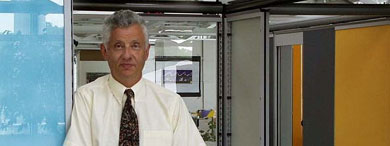|
|
|||||
|
|
Paul Goodman's Latest Documentary to Air Nationwide on PBS
"Escola de Samba" explores the Brazilian carnival and how one samba school prepares to compete against other schools in San Paulo. The process, from selecting a theme and music to designing costumes, floats and rehearsals, takes more than 10 months and 4,000 people.
In the spotlight is how such large-scale work systems operate at high levels of effectiveness without technology or modern management practices. What motivates the participants year-after-year? The answers come from the participants themselves, while the music, dance and visuals of the carnival provide a dramatic context for the film.
The film is the second documentary created by Goodman focusing on how developing countries use human and social ingenuity to create complex, efficient and reliable work systems.
Goodman's first documentary, "The Dabbawallas," explored the work of 4,000 dabbawallas, or "box people," who correctly deliver more than 100,000 lunches daily to homes in Mumbai, India, by bicycles, carts and trains. "The Dabbawallas" has appeared on many PBS stations across the country.
Goodman said a third documentary will chronicle the work process of the "ship breakers" in Vietnam and China. These workers dismantle large cargo ships by hand to salvage and sell their scrap metal.
For the past 12 years, Goodman, the Richard Cyert Professor of Organizational Psychology at the David A. Tepper School of Business, has produced some 20 educational films and documentaries.
Mike Laffin |
|||
|
Carnegie Mellon Home |
|||||

